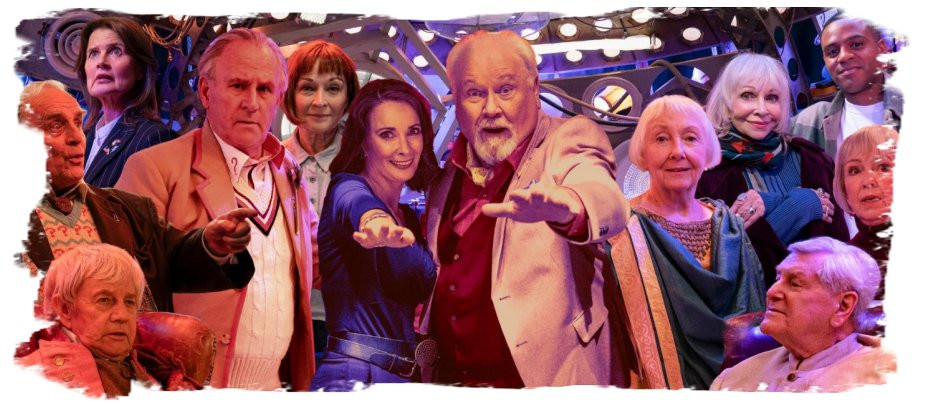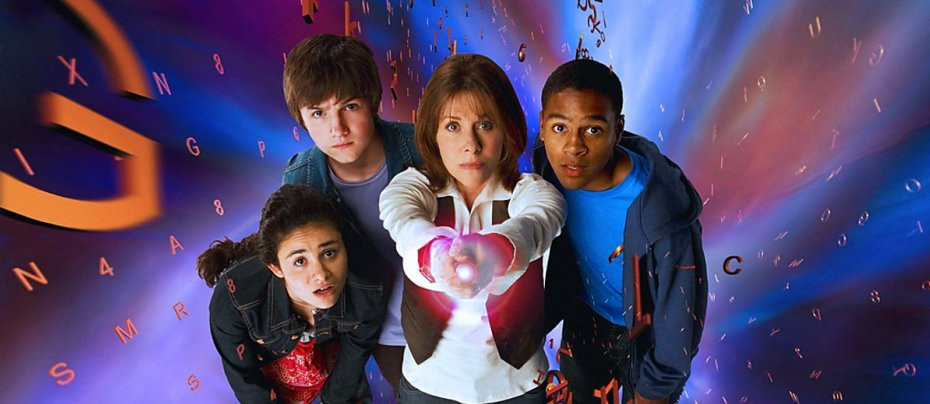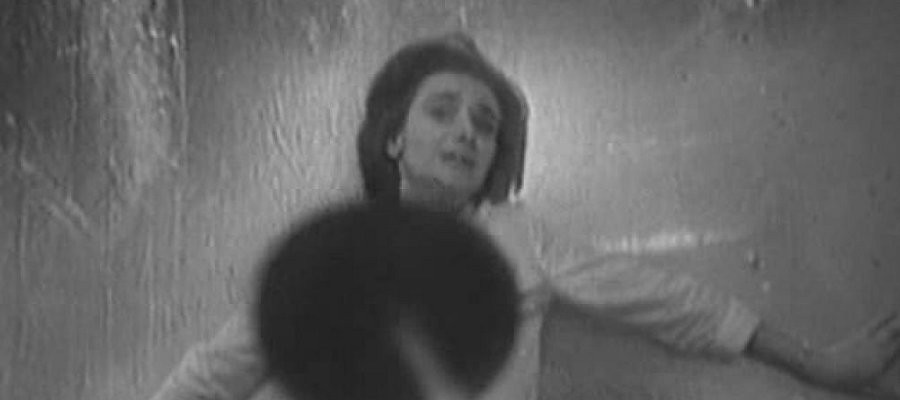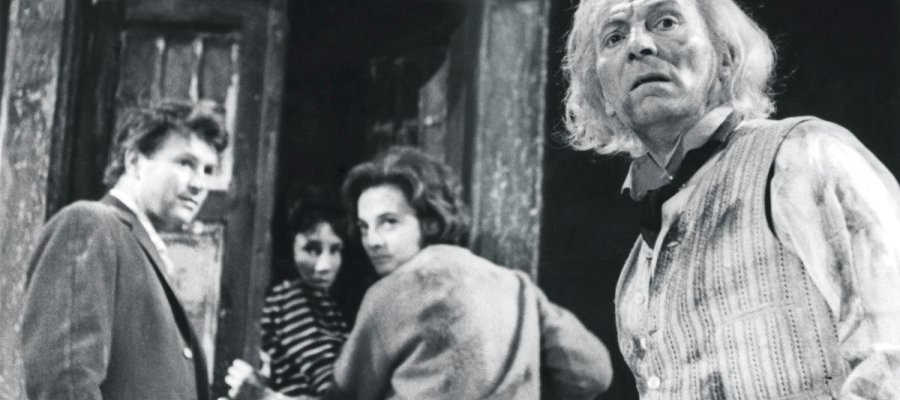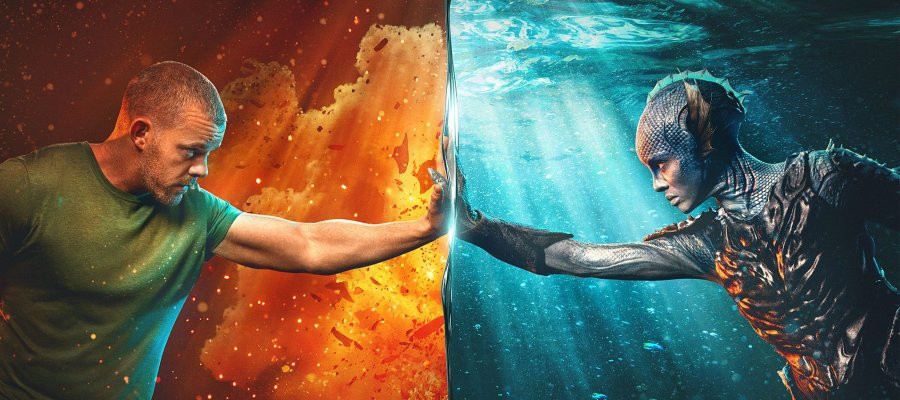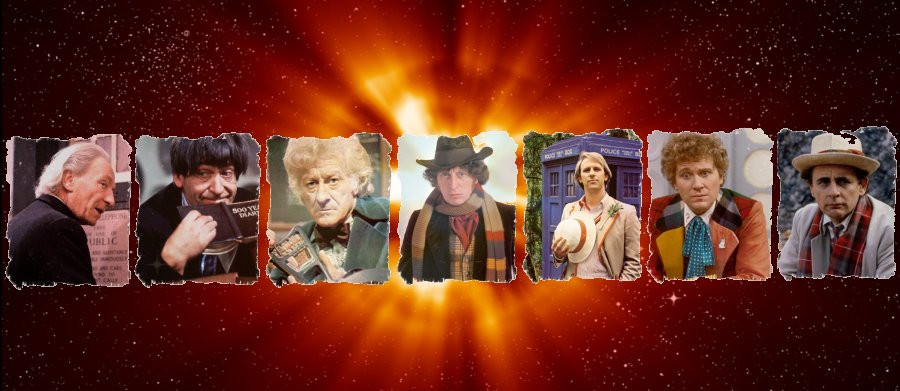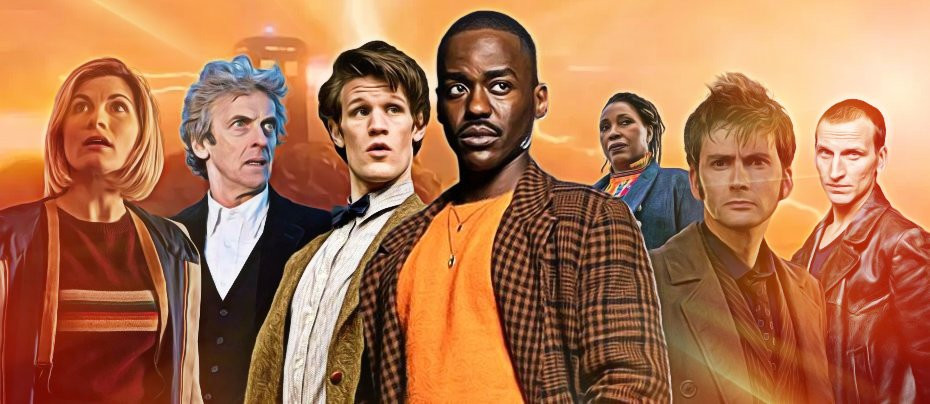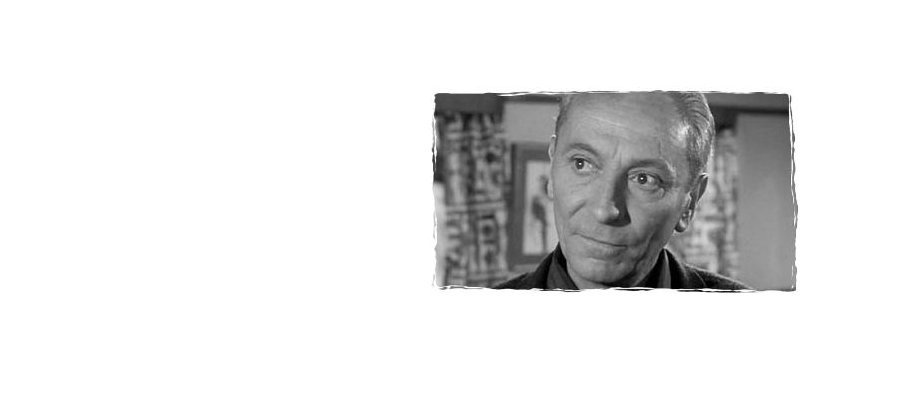
William Hartnell
"I AM THE DOCTOR - THE ORIGINAL, YOU MIGHT SAY."
"I think I represent a cross between the Wizard of Oz and Father Christmas." - William Hartnell speaking to The Daily Express on being Doctor Who.
William Hartnell's insistence on unflinching professional standards coupled with his lifelong battle against his own particularly personal demons lent him an air of difficulty that often eclipsed the inner sensitivity and innate humour that was intimately familiar to those closest to him. Although the true depth of his versatility as an actor has perhaps become underappreciated with the passing of time, the impact of his creation of one of the most iconic figures in the history of television, over fifty years ago, has succeeded in producing creative ripples which carry through even into the modern day. For children of all ages, across a time span of generations, from those who discover or perhaps rediscover him through the magic of early Doctor Who, the acting talents possessed by Hartnell are a delight that, once experienced, remain with you forever.
William Hartnell was born on 8 January 1908, just south of St. Pancras station in London, the only child of Lucy Hartnell - an unmarried mother. He was raised partly by a foster mother, though he did spend many happy childhood holidays in Seaton, Devon, with his mother's family, who were farmers. So ashamed was he by his illegitimate background that in later years Hartnell invented his own biography, claiming to have been born on a dairy farm but deciding not to carry on a centuries old tradition by working the land, he ran away from home to be an actor. Hartnell never discovered the identity of his father (whose particulars are left blank on his birth certificate), despite extensive efforts to trace him.
At the age of 16 Hartnell left school without any prospects but through a boys' boxing club he met the art collector Hugh Blaker, who would become his unofficial guardian and arrange for him initially to train as a jockey. When that didn't work out Blaker, who had a passion for the theatre, arranged for Hartnell to audition for Sir Frank Benson's Shakespearean Company. He was taken on as a general dogsbody - call-boy, assistant stage manager, property master and assistant lighting director - but was occasionally allowed to play small walk-on parts.
Two years later Hartnell parted company with Sir Frank Benson's group and went off on tour working for a number of different companies around Britain. In 1928 he appeared in the play Miss Elizabeth's Prisoner by R. N. Stephens and E. Lyall Swete, along with the actress Heather McIntyre, who he soon started to date. Hartnell quickly grew in reputation as an actor of farce and understudied renowned performers such as Lawrence Grossmith, Ernest Truex, Bud Flanagan, Chesney Allen and Charles Heslop, who was in musicals and was a farcical actor. He played repertory in Richmond, Harrogate, Leeds and Sheffield and had a successful run as the lead in a touring production of Charley's Aunt. He also toured Canada in 1928-29, acquiring much valuable experience. On his return to England, he and Heather were married.
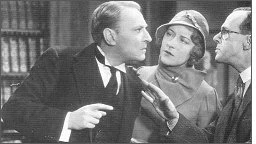
Round about this time he decided to try his luck in films but for a time found the only parts he could get was as an extra in crowd scenes. Nevertheless, he kept going until eventually his face became known and he won a part in 'I'm an Explosive' (1933), a cheaply made comedy in which he played the lead; a clerk who unwittingly swallows an explosive device. In spite of this break casting directors were not knocking on his door and he soon returned to crowd scenes and extra work. By the late thirties, with no blossoming film career, Hartnell returned to the theatre where he understudied Ralph Lynn in London's West End.
At the outbreak of the Second World War Hartnell was drafted into the Royal Artillery Corp but only lasted 11 months before suffering from a nervous breakdown, which left him with a stutter.
"The strain of training was too much. I spent twelve weeks in an army hospital and came out with a terrible stutter. The colonel said, "Better get back to the theatre. You're no bloody good here." I had to start all over again."
It took him over a year to pick up the threads of his shattered nerves but with great perseverance he overcame his speech impediment and with the help of friends within the business he began to pick up one or two acting roles in the movies.
"I had to pick up anew the threads of my career. I kicked off playing a valet-cum-thief opposite Oliver Wakefield in 'The Peterfield Diamond', then an old London taxi cab driver in 'Flying Fortress'. Then came a small cameo in 'Sabotage at Sea', and a comedy lead in 'The Dark Tower', from there to Ealing Studios to play 'The Bells Go Down.'"
However, it was the stage that led to his big break in films. In 1943 director Carol Reed saw Hartnell at the Garrick Theatre in London playing Dallow in Graham Greene's 'Brighton Rock'. Reed was impressed enough with the performance to offer Hartnell a screen test for the part of a tough and uncompromising sergeant in his next film, 'The Way Ahead.'
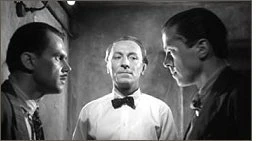
On the strength of his critically acclaimed performance in 'The Way Ahead', Hartnell was signed by a major studio, British National. He received top billing in 'Strawberry Roan' (1944), 'The Agitator' (1944), 'Murder in Reverse' (1945) and 'Appointment with Crime' (1945). However, the films were not box office successes and British National did not renew his contract. Despite this setback, Hartnell continued to win non-starring or supporting roles in a number of other productions including the Boulting Brothers' big screen adaptation of 'Brighton Rock.'
Hartnell was no longer seen as a comedic actor and was only cast in tough-guy roles such as military types, prison officers, detectives and villains. Even when he landed a role in a comedy he found he was being cast as the straight man. He soon became frustrated playing similar characters all the time. Even as early as 1945 he was worried of being typecast into these roles:
"I'm tired of playing the eternal tough guy of British films. Asking me to play this type of role in the first place was about as practical as asking Danny Kaye to play Napoleon on Elba! Somehow I've managed to scrape through, but after five years of it I can clearly see the danger signal ahead. I'm certain picturegoers are sick and tired of seeing me pull horrid faces before the cameras, and that if I don't change my style soon I shall find myself a has-been!
"It's not generally realised that 45 of my 60 films are comedies and that I was a leading Quota-Quickie* funny man."
*Quota-Quickies were cheaply made films turned out in less than a week.
So when television offered him a role in a sitcom he readily accepted it. However, the role of Sergeant Major Percy Bullimore in Granada's 1957 series of 'The Army Game' was, once more, the straight man to more comedic performances by the likes of Alfie Bass, Norman Rossington, Charles Hawtrey and Bernard Bresslaw. After the second series, Hartnell quit, although he did return for the final series in 1960 (between which time he played the sergeant in the first Carry On film, 'Carry On Sergeant' and also appeared as a town councillor in the Boulting Brothers' film 'Heavens Above!' and as Will Buckley in the film 'The Mouse That Roared' - the latter two with Peter Sellers).
"I stayed with that series ('The Army Game') for the first year, and then I thought I would give it a rest and try to do something else. I was away from it for two years, back in film making. And then I quite by accident met the producer again in a train going home one evening and he asked me if I'd come back to the show. So I said yes, at a price. And he agreed and I went back for another year."
Then in 1963, Hartnell was cast as a hard-bitten talent scout alongside Richard Harris and Rachel Roberts in Lindsay Anderson's movie 'This Sporting Life'.
"I was just playing this sort of bone idle, out of work, on the dole, ill old man called Dad who had great ambition in life in earlier days to be a rugger player, and to be a good professional player, make a success of his life. Unfortunately, he ended up, as it were, in the gutter, and rather an ill and useless old man, but in this young boy (the character played by Richard Harris) he saw something; he saw himself."
Hartnell's performance in 'This Sporting Life' was noted by Verity Lambert, the producer who was setting up a new science-fiction television series for the BBC, 'Doctor Who.' Lambert offered Hartnell the title role. Although he was initially reluctant to take it his agent, his son-in-law Terry Carney, suggested it might be just the type of role he should take to break him out of his type-casting. He took a copy of the first draft script to Hartnell's home near Mayfield in Sussex and after reading it Hartnell agreed to meet up with Verity Lambert and director Waris Hussein who convinced him to take the part.
"...my son-in-law approached me about playing the part. I hadn't worked for the BBC since steam radio twenty-five years ago and I didn't fancy the idea of returning to state control so late in life.
"My son-in-law - Terry Carney, son of George Carney, the variety artist - was quite right, the role was exactly me. For only the second time in thirty-seven years - the film 'This Sporting life' was the last - I had the opportunity to play an old man.
"What's more, the part required some thought, unlike 'The Army Game' and most of the other rubbish I've been associated with in the past. I've not been offered the sort of work I've wanted due to past disagreements I've had with producers and directors over how parts should be played."
Hartnell's performance as the mysterious Doctor who starts out as a cranky, cantankerous and sometimes dangerous alien and gradually turns into a warm-hearted almost magical father figure immediately captured the public's imagination and quickly established the series as a ratings winner. Over 40 years and several lead actors later it is bigger than it ever was. But as director Douglas Camfield once noted, it was Hartnell who "created" the Doctor and provided the yardstick against which every actor who plays the part is measured. However, Hartnell also gained a reputation at times of being difficult to work with.
"To be perfectly honest, Bill could be difficult to work with. He was cantankerous, wilful, dogmatic and never suffered fools gladly." - Douglas Camfield (Director).
"I liked Bill a lot. I thought he was a smashing bloke. Very difficult to work with, but he was a perfectionist in his own way and it came out as rattiness with directors and producers." - Peter Purves (Actor).
"Billy was marvellous, very professional. He had all the switches in the TARDIS marked out exactly in his mind, and he thought up the idea about the Doctor always getting my name wrong. Billy wasn't at all like the Doctor off set. He was a very professional actor who just did his job in his own way." - William Russell (Actor).
"Bill was a hardened old pro, but he was also getting on in years. Time and time again he had the weight of the explanation to do, so as to make the whole thing acceptable and believable. He would stray away from the script and bumble and ad lib his way through so at times we tore our hair and there were some great old fights. However, usually when we came to look at the finished product, Bill had made sense of it and it looked fine." - Donald Tosh (Story Editor)
'Doctor Who' earned Hartnell a regular salary of £315 per episode by 1966 (equivalent to just over £4,000 in today's money). But the gruelling schedule of 'Doctor Who' began to wear him down. Production meant that he only enjoyed one short break from filming a year and he had to spend five days a week living in London, only returning home for the weekends. At the same time he was also suffering from arteriosclerosis - a hardening of the artery walls which leads to poor blood circulation. This, compounded with the mental and physical stresses of making the series, led to Hartnell having problems with remembering his lines, which was a cause of further frustration to himself.
At the same time the new producer of 'Doctor Who' (Innes Lloyd) wanted to make the series more dynamic and gutsy. He felt that to do this the series needed a new lead actor. Although the official story put out to the press was that Hartnell was giving up the role for health reasons, the truth was that he did not go willingly and was deeply hurt and saddened at leaving the part behind. A year after leaving the series Hartnell had another nervous breakdown. However, he once again recovered and returned to full-time theatre as well as making appearances in TV series such as 'No Hiding Place' and 'Softly, Softly.'
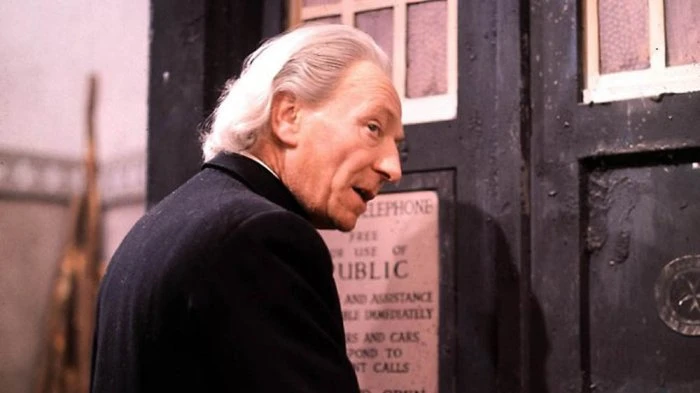
Over the next few years William Hartnell's physical and mental health began to decline. In 1972 he was contacted by the 'Doctor Who' production office and invited to reprise his role in a tenth anniversary special called 'The Three Doctors' (alongside his successor, Patrick Troughton, and the current Doctor, Jon Pertwee). He readily agreed. But when his wife, Heather Hartnell, discovered what he had committed himself to, she quickly phoned the BBC and explained that his health was too poor for him to play a major part and there was no question that he'd be well enough to travel to London for filming. In the end his part was scaled down and the production team travelled out to his home (now in Marden, Kent) and filmed his few short scenes there. Even so, his memory had deteriorated to such an extent that he had to read his lines from cue cards placed out of camera shot.
His appearance in this story was his last work as an actor. In December 1974 he was admitted to hospital permanently. In early 1975, he suffered a series of strokes brought on by cerebrovascular disease and died peacefully in his sleep of heart failure on 23rd April 1975 at the age of 67.
William Hartnell may not have been the most accomplished actor to have played Doctor Who. Budgetary and time constraints that precluded re-takes meant that many of his 'fluffed' lines were broadcast. At times he could be difficult to work with. But to a generation of fans he was 'The Doctor' He once said of the role: "I think that if I live to be ninety, a little of the magic of Doctor Who will still cling to me." In 1975 Dalek creator Terry Nation said of him: "The biggest tribute to William Hartnell is that he started a show which is still going on with huge audiences."
Over forty years later that comment is as true as it ever was.
Published on February 20th, 2019. Written by Laurence Marcus (11th December 2008). William Hartnell's own words in blockquotes taken from various articles and interviews between 1945 and 1975. Sources of reference: Doctor Who The Sixties and The Handbook: The First Doctor both by David J. Howe, Mark Stammers, Stephen James Walker. Various Internet resources. Contribution from: SRH for Television Heaven.



